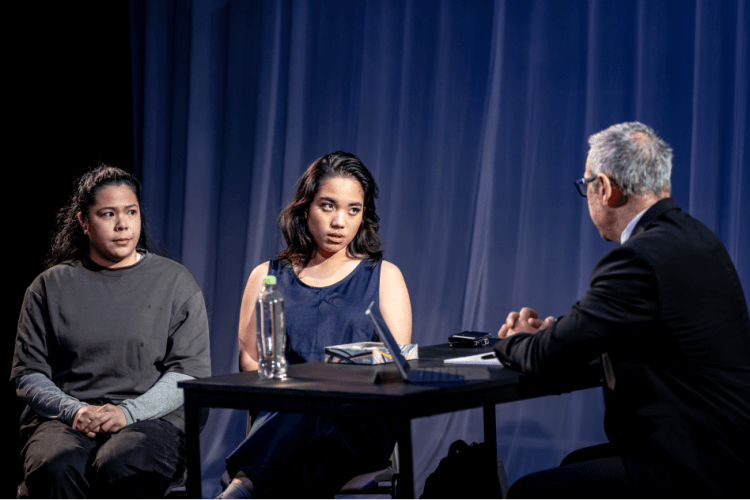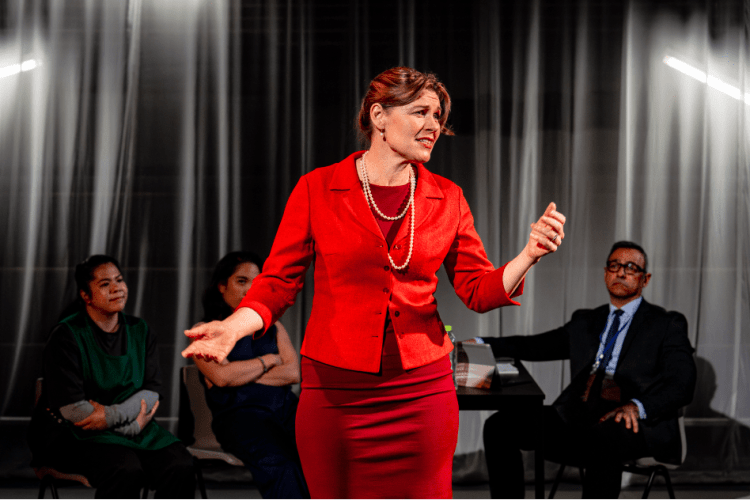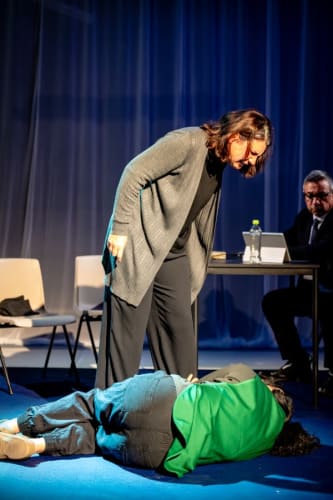You won’t have to encounter much of the UK media to find the negative stereotyping of refugees and asylum seekers. Most of it comes from politicians, who, like the Home Secretary, talk about the UK being “invaded” or faced by a “hurricane” of migration.
We rarely hear the stories of those on the receiving end of such labels. The important play Can’t See for Looking draws on interviews with Filipina domestic workers who have escaped from modern slavery in London to give us a fictional glimpse of the situation they faced.
The central character, Rosa (Margarita San Luis), has been working as a nanny since age fifteen for the family of Akeem Abbas, first in Abu Dhabi and later in London. Initially, it seemed like a good way of helping her family, particularly her mum, who suffers from tuberculosis. Each month, the equivalent of 250 pounds would be sent to her father.
The play opens with an immigration officer, John (Fanos Xenofos), arriving to interview Rosa, aged twenty-three, about her asylum claim. His manner is curt. He tells us they must watch for lies and avoid being soft with them.
Although Rosa is accompanied at the interview by Angel (Ericka Posadas), who helped rescue her, John warns Angel not to say anything or she will be asked to leave.
As Rosa answers his questions, she sometimes steps forward as if speaking of events directly to the audience. On occasions, the more disturbing encounters with Nura (Rania Kurdi), the mother of her employer Akeem, would be shown.
The conditions of her Abu Dhabi life become much more restrictive in London. She is expected to work 24/7 and carry out the tasks of being the family maid and a nanny to five children. Her phone is confiscated, and she is brutally beaten. Even the kindness shown by Akeem’s brother Amir turns from mutual affection to non-consensual sex.
The evidence of mistreatment is there to see. There are the bruises on her arm spotted by Henrietta (Laura Fitzpatrick), the chair of the Expats Social Club, who was at Akeem’s home for a game of bridge. Later, Henrietta sees Rosa being hit and tells us she is puzzled why the nanny was wearing a collar with a bell attached.
But like many other people, she refuses to believe that something as terrible as modern slavery could be happening in her neighbourhood.
The performance is confident and engaging. The play, with a touch of the thriller, always holds our attention as it encourages more understanding and greater compassion for people whose difficulties in seeking asylum are too often made worse by the public debate around migration.
Not only are the victims of modern slavery traumatised by the horror and sometimes shame they have suffered living effectively as a prisoner in a foreign country, but if they escape, they are then forced to endure a cold bureaucratic system of checks that might result in deportation to greater danger in their home country.



